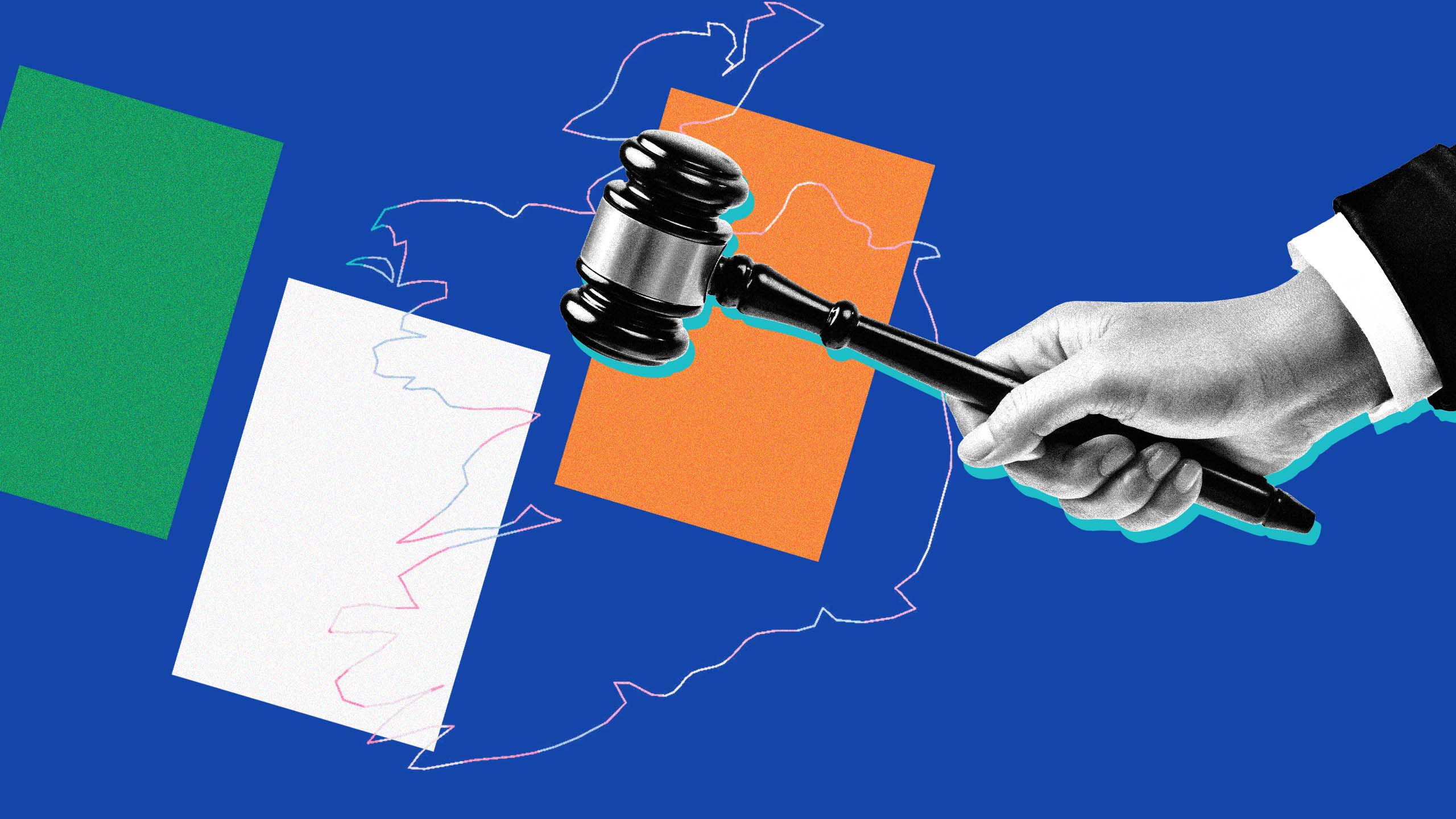Ireland has promised to introduce legislation to ban conversion therapy. The announcement comes after five years of the neighbouring U.K. dragging its heels on its own conversion therapy ban.
On Wednesday, Ireland’s minister for children, equality, disability, integration and youth, Roderic O’Gorman, told the Irish Mirror that he’s committed to bringing forward plans to ban conversion therapy this year. The announcement comes after he pledged to start research on the topic in late 2021.
“A process that seeks for somebody to change their sexual orientation or gender identity is extremely exploitative, particularly if undertaken on someone under 18,” O’Gorman, who is gay himself, told the Irish Mirror. “From the point of view of having some understanding of the damage that it can do to people, it is something I feel strongly about and something I really want to progress as equality minister.”
The Human Rights Campaign (HRC) defines conversion therapy as the dangerous practice of targeting LGBTQ2S+ people in order to attempt to change their sexuality or gender identity. Youth are especially vulnerable to these practices, which can lead to depression, anxiety and suicide, according to the HRC. Countless organizations have officially spoken out against conversion therapy practices, including the United Nations, the British Medical Association (BMA) and the American Psychiatric Association.
O’Gorman is hopeful that legislation in Ireland can be introduced this year, while admitting that delays are common. “Obviously, legislation takes time, but I think it’s possible we could have it passed by the end of the year,” he told the Irish Mirror. “That’s certainly what I’d be working toward, but it could drift into 2024.”
This latest announcement is the last in O’Gorman’s developing track record as a vocal advocate for queer issues in Irish parliament. Last Monday, in a statement to the Irish Independent, he said that he believes primary school children should receive education on what it means to be trans. He also called for a “wider gender service” in Ireland, which does not currently have its own dedicated psychiatric service for children and youth experiencing gender dysphoria. This means that many travel to the U.K. for services, where the average wait time for gender identity clinics is two years, according to Metro UK.
“The rights of trans people in our country can’t be up for debate,” O’Gorman told the Independent.
Meanwhile, in the U.K., a long-promised ban on conversion therapy has yet to materialize after years of delay. The ban was first promised by Theresa May’s government in 2018 and, following her resignation, was passed on to Boris Johnson’s government. Uncertainty about the legislation grew when Johnson said in March 2022 that he was dropping plans to draft the bill. Just hours after that announcement, the government made a major U-turn, saying that there would be a conversion therapy bill, but that it would apply only to attempts to change people’s sexuality and not apply to conversion therapies aimed at changing someone’s gender identity.
The effective exclusion of protections for trans people from the U.K.’s potential legislation led to major backlash from queer advocates and organizations. The U.K.’s first-ever international LGBTQ2S+ conference was cancelled after more than 100 organizations boycotted it due to the government’s stance on conversion therapy. The BMA released a statement responding to the announcement, saying it received the news with “great dismay.”
“Trans people are already most vulnerable to being subjected to so-called conversion therapy, with one in seven trans people reporting that they had been offered or had ‘conversion therapy,’” said the statement. “Allowing practices like this drives societal prejudices about transgender people and further isolates the trans community.”
Advocates for queer rights in the U.K. are voicing their appreciation for the speed with which Ireland is moving toward a conversion therapy ban, while pointing out the stark contrast to policy change in the U.K.
“Ireland is poised to join the growing number of countries across the world who have moved decisively to protect their LGBTQ+ citizens from this degrading practice,” said Sasha Misra, the associate director at the queer advocacy organization Stonewall, according to Metro UK. “We must now ask the same of the U.K. government.”
Jayne Ozanne, a former LGBTQ+ advisor to the U.K. government, told Metro UK that she was “thrilled” to learn of the pace at which Ireland is moving to ban the “abusive” practice. “It seems incredulous to me that the U.K. government is taking so long to do the right and decent thing, which they promised nearly five years ago now,” she said.
If Ireland does indeed pass a total ban on conversion therapy, it will become the third country in Europe to do so, joining France and Malta. Other countries, like Greece and Germany, have banned the practice, but only on minors.
O’Gorman says that the ban is just one piece of his plan for the coming year. “We’re looking to bring forward mechanisms that [mean] just as no one should be discriminated against on grounds of their race or sexual orientation, they shouldn’t be discriminated against on socio-economic grounds either,” he told the Mirror.
“I’m pleased to be in a department dealing with issues that I feel very passionately about.”


 Why you can trust Xtra
Why you can trust Xtra


